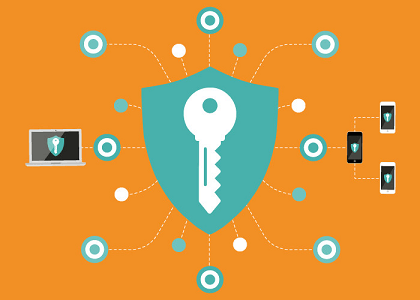Do you have concern about the privacy security of WhatsApp video calls or phone calls? If the answer is yes, you may need this guide to get the answer to the question - are WhatsApp calls encrypted?

In an era where privacy and security are paramount in our digital lives, many people wonder about the safety of their calls and messages on popular messaging apps like WhatsApp. WhatsApp, with its user-friendly interface and global reach, has become a staple in the world of communication. However, concerns about privacy and encryption remain, particularly when it comes to WhatsApp calls.
Are WhatsApp calls encrypted, and how secure are they? In this article, we'll delve into the fascinating world of WhatsApp security and provide answers to these pressing questions.
Before we dive into WhatsApp's encryption, let's establish a fundamental understanding of what encryption is. Encryption is a process that converts information or data into code to prevent unauthorized access. In the context of messaging apps like WhatsApp, encryption ensures that your conversations and calls remain private and secure.

Without proper encryption, your messages and calls could potentially be intercepted, exposing sensitive information to malicious entities.
WhatsApp has been a pioneer in the realm of secure messaging. It employs a robust security protocol called end-to-end encryption. This means that only the sender and the recipient of a message can decipher its contents. Even WhatsApp itself cannot access the messages or calls, ensuring your privacy is maintained.
So, the answer to the central question - are WhatsApp calls encrypted - is a resounding "yes." WhatsApp calls are indeed encrypted using the same end-to-end encryption protocol that protects your messages. When you make a WhatsApp call, your voice data is scrambled into an unreadable format on your device, and only the recipient's device can decrypt and play the audio.
WhatsApp's encryption process is relatively simple in concept but incredibly powerful in practice. Here's a basic breakdown of how it works:
? Key Generation When you set up WhatsApp, it generates a pair of encryption keys - a public key and a private key. The public key is known to anyone, while the private key remains confidential and stored on your device.
? Key Exchange When you initiate a call or send a message, your device uses the recipient's public key to encrypt the data. Only the recipient's device, which has the corresponding private key, can decrypt and access the content.
? Secure Transmission The encrypted data is transmitted securely over the internet and reaches the recipient's device.
? Decryption Once the data arrives at the recipient's device, it uses the private key to decrypt and reveal the content.
This process ensures that even if a third party intercepts your calls or messages, they would only receive unintelligible, encrypted data.
While WhatsApp's encryption is robust, it's essential to understand its limitations. Here are some factors to consider:
⚠️ Metadata While the content of your messages and calls is secure, some metadata is still accessible. Metadata includes information such as who you're communicating with, when the communication occurred, and the size of data transferred. This information is necessary for the app to function but doesn't reveal the actual content of your conversations.
⚠️ Backup Vulnerability WhatsApp offers the option to backup your chats and media to cloud services like Google Drive (for Android) and iCloud (for iOS). These backups are not end-to-end encrypted, meaning they are potentially accessible by the cloud service providers. This is an important consideration if you are concerned about the security of your chat history.
While WhatsApp conversations are end-to-end encrypted on your device and during transmission, what you backup to the iCloud service may not be, as there have been iCloud privacy breach scandals from time to time.
If you want to take an extra step to secure your chat history when backing up to your PC, you can create an encrypted iPhone WhatsApp backup. Here we’d like to recommend FoneTool, a professional WhatsApp backup & transfer tool for iOS devices.
FoneTool saves your WhatsApp backup and other iPhone backup files locally. Only when you enter the passcode to the backup, can you access the backup. You can click the download button below to get the freeware on your computer, and follow the simple steps below to encrypt iPhone WhatsApp backup on PC.
Step 1. Launch the FoneTool software on your computer. Then, connect your iPhone to PC with a compatible USB cable.
Step 2. Choose WhatsApp Manager from the homepage of FoneTool > Choose WhatsApp > Click Get Started under Backup WhatsApp to continue.
Step 3. Enable backup encryption and enter the passcode to protect your WhatsApp data > Select a storage path to save the backup files > Click Start Backup.
When it's done, you can click View button to check the WhatsApp chats. You can also go to Backup History to browse, restore, and manage your backup files.
Are WhatsApp calls encrypted? In summary, WhatsApp calls are encrypted with end-to-end encryption, making them secure and private. Your conversations are protected from prying eyes, and the encryption extends to both one-on-one chats and group chats. However, it's important to be aware of the limitations, such as metadata exposure and the vulnerability of cloud backups.
If you want to take extra precautions, you can encrypt your iPhone WhatsApp backup on your PC to ensure that even your chat history backups are secure. With these security measures in place, you can enjoy your WhatsApp calls and messages with confidence in your privacy.